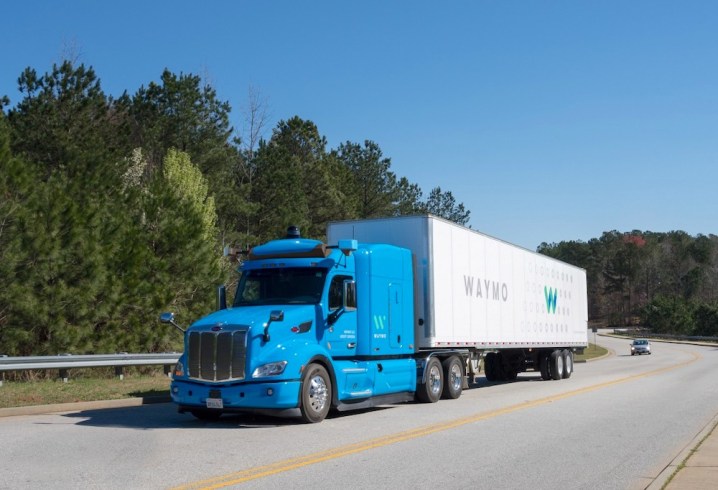
Waymo is bringing its autonomous trucks back to Arizona.
The Alphabet-owned company — formerly operated by Google — announced the news in a tweet on Wednesday, May 29.
Waymo has become very familiar with the state’s roads as the state is one of the company’s favorite locations for testing its autonomous cars. Toward the end of last year, for example, it selected Phoenix for the trial launch of its first ridesharing service — Waymo One — using its autonomous Chrysler Pacifica hybrid minivans.
While the team has been developing autonomous cars for the last 10 years, its interest in self-driving trucks is a more recent development. The first tests of its hands-free Class 8 big rig started in Arizona in 2017, and when that trial finished it shifted testing to Atlanta, Georgia, the following year. Now the team says its trucks will be back on the roads of the Grand Canyon State before the end of this week.
It’s not clear how many trucks are involved, but one thing’s for sure — the big, mighty vehicles will be sticking to the state’s wide and relatively straight freeways rather than heading into cities where the turns might still be a bit too tight for the technology to handle.
“Our software is learning to drive big rigs in much the same way a human driver would after years of driving passenger cars,” Waymo said when it launched its Atlanta trial in 2018. “The principles are the same, but things like braking, turning, and blind spots are different with a fully loaded truck and trailer.” In other words, the custom-built sensors and complex software need to be adapted to suit the size and weight of the trucks to ensure a safe and smooth ride. And rest assured, in the unlikely event that any of the trucks get into difficulty while they’re out and about, a “highly trained driver” will be behind the wheel, ready to take control.
In Atlanta, Waymo’s self-driving truck tests transported freight for Google data centers, but it hasn’t said if the Arizona trucks will be put to work, too.
Waymo is one of a number of players developing autonomous trucks. San Diego-based TuSimple, for example, recently announced a partnership with the USPS to transport mail across several states using its autonomous big rigs, while Volvo has been looking at how it might use different kinds of self-driving trucks for specific tasks.
Uber, on the other hand, ditched its autonomous-truck program in July 2018, saying it wanted to focus on developing its self-driving car instead.
Editors' Recommendations
- Waymo robotaxi attacked and set on fire in San Francisco
- Beleaguered robotaxi startup Cruise lays off quarter of workforce
- Cruise woes prompt production halt of fully driverless van
- Dubai Police to deploy driverless patrol cars with AI smarts
- Waymo expands robotaxi service area in San Francisco

